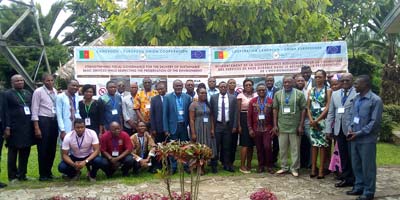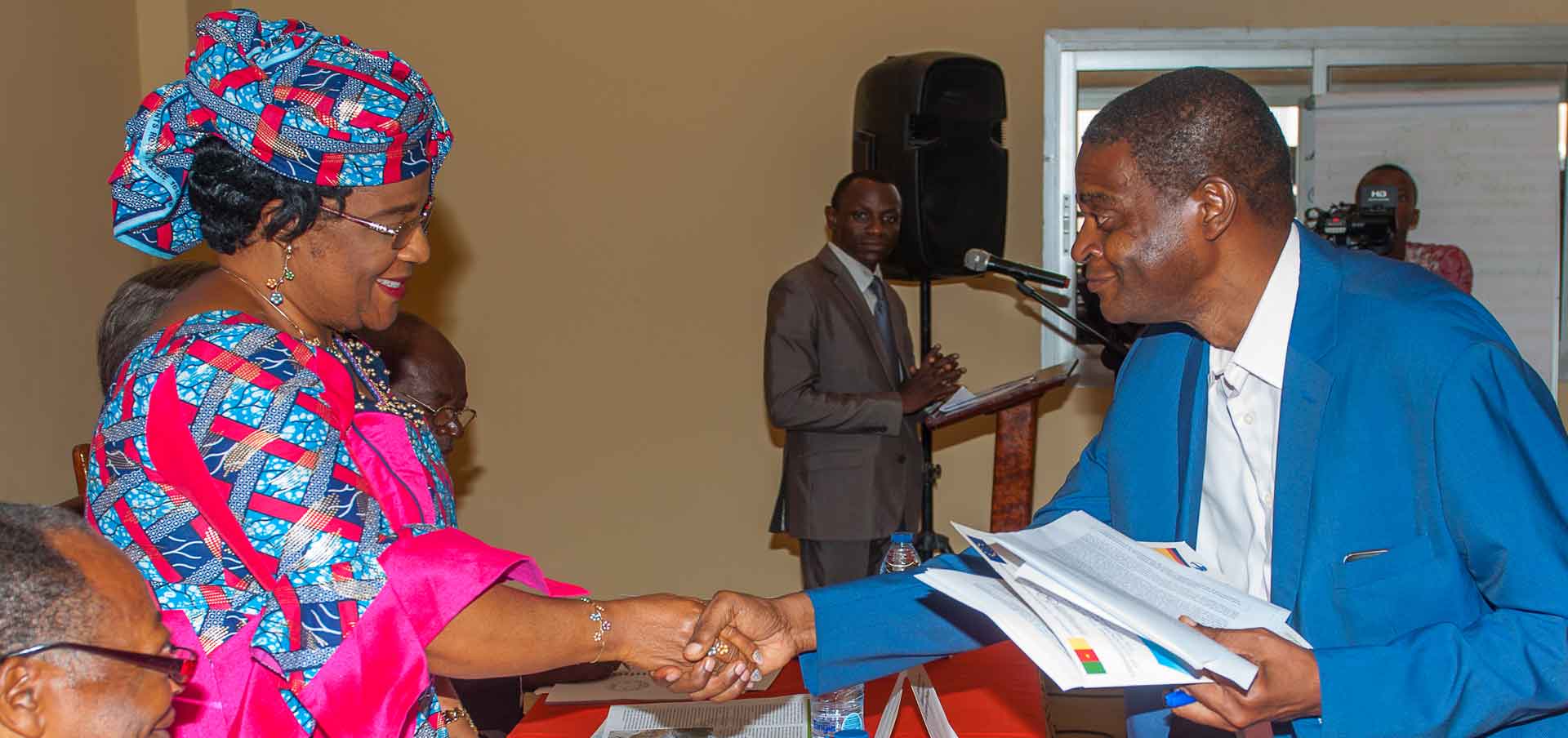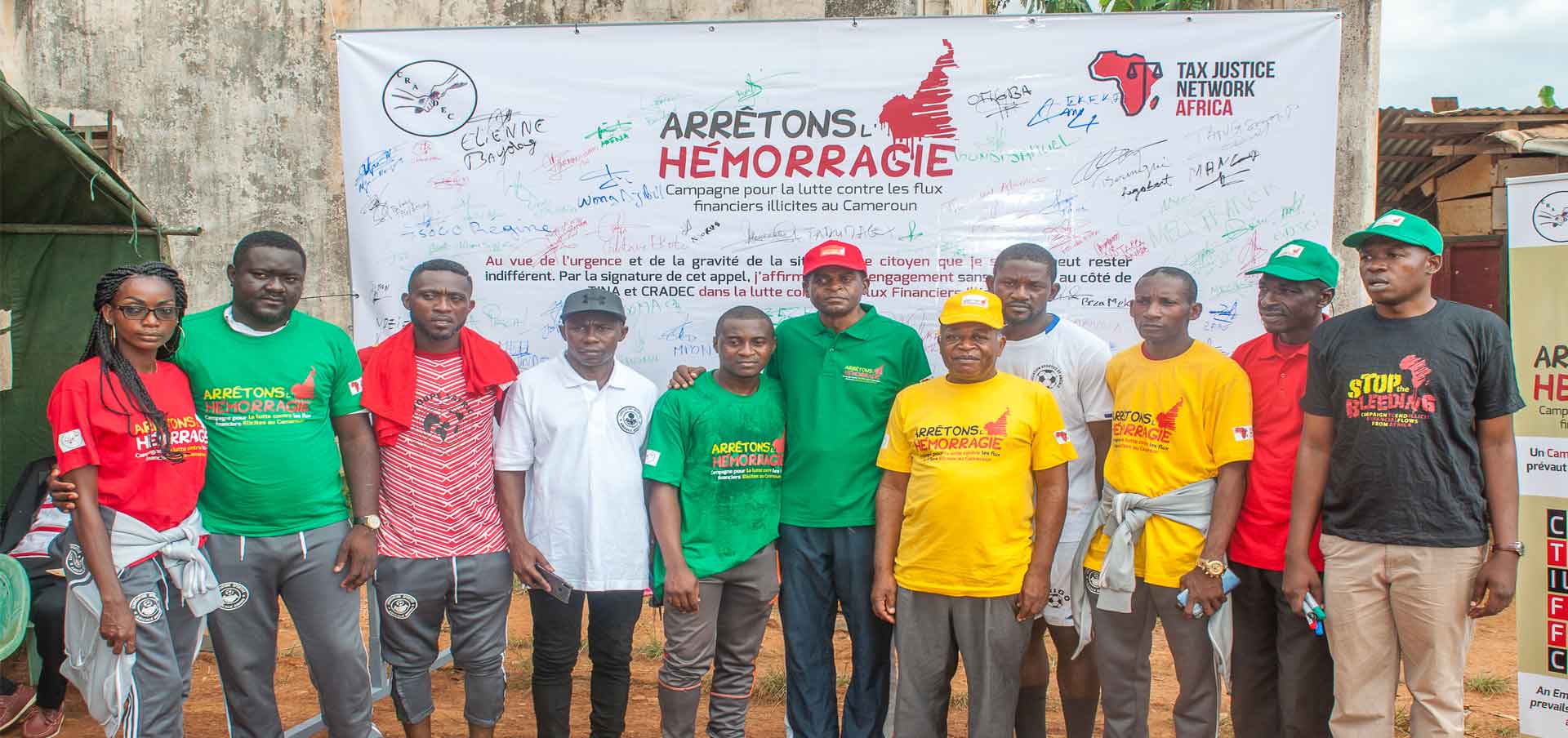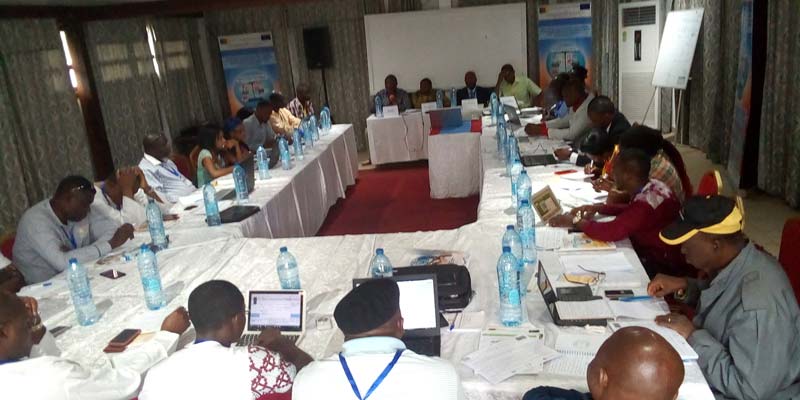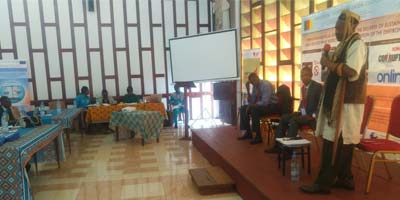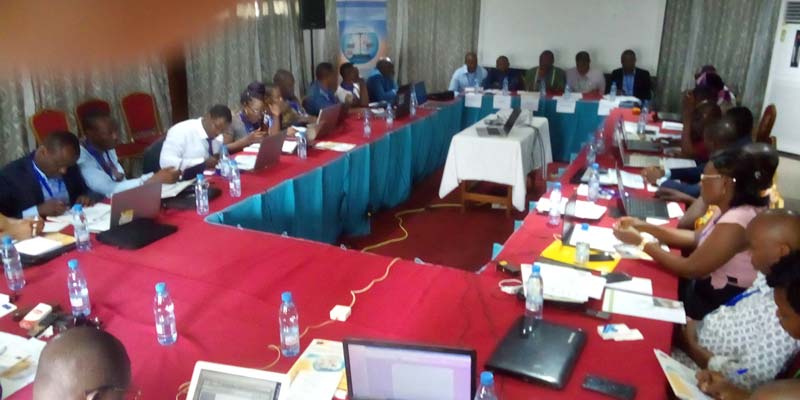The National Observatory on the state of tax fairness in Cameroon was launched at the Djeuga Hotel in Yaounde on Friday 12 November 2021. The main objective of the State of Tax Fairness in Cameroon is to strengthen advocacy activities at both national and local levels. The establishment of a national observatory for tax fairness which will be composed of representatives from the administration, parliament, the private sector and civil society.
Such a body could also serve as an arbitration board on issues of tax dynamics. The opinions of this observatory should be binding, meaning that the resolutions and recommendations of this observatory should be considered imperatively as part of the discussion process on the finance law.
The 2021 edition of the State of Tax Justice provides an overview of the national tax system and identifies the main challenges it faces. While providing reliable evidence for lobbying and advocacy for tax fairness in Cameroon, it strengthens the position of parliamentarians, the media and civil society organisations, including businesses, in the process of dialogue on public finance in general and taxation in particular, and enhances their credibility and power of influence vis-à-vis the tax administration.
Cameroon, an Africa in miniature, rich in natural resources, has a poverty rate of nearly 37.5% (2014, World Bank). In 2017, indirect taxes alone accounted for more than 70% of the revenue collected by the Directorate General of Taxes (DGI). In 2017, indirect taxes alone accounted for more than 70% of the revenue collected by the Directorate General of Taxes (DGI): 40.9% for VAT, 10.4% for excise duties, 6.8% for the TSPP, 5.7% for registration and stamp duties and 3.5% for the TSR. So 30% is generated by direct taxes. This means that Cameroonians, the majority of whom are poor, pay a disproportionate amount of tax depending on their capacity. The portion of the VAT that is a consumption tax hits the low incomes, mainly devoted to the consumption of basic necessities, of poor households.
Illicit Financial Flows (IFFs) are a form of illegal and immoral capital flight that occurs when money is earned, transferred or spent in violation of the law and ethics. So, tackling these IFFs is critical to Africa's recovery, especially in the context of the COVID-19 pandemic, and must therefore be addressed urgently. There is broad agreement among tax justice experts that funds that escape from Africa, if kept on the continent, could be channelled towards achieving its development goals. The social, economic and political impact of the COVID-19 pandemic is and will continue to be felt most acutely by low-income citizens. Their resilience, already socially shaken, is at risk of collapsing if strong measures are not taken for fiscal justice that (i) raises revenues to finance public services, infrastructure and administration; (ii) ensures redistribution to reduce inequalities between individuals and groups; (iii)re-prices to limit 'bad habits' such as tobacco and alcohol consumption and carbon emissions, and (iv) ensures representation to build healthier democratic processes, recognising that greater reliance of public expenditure on tax revenues is strongly linked to better quality of governance and political representation.
The reports on Tax Equity (2019) and Illicit Financial Flows in Trade in Cameroon (2020) provide an analysis of key systemic constraints and gaps in tax policy, norms, practices and beliefs in general and in the international trade sector in particular. The reports' findings and recommendations are critical to the government's quest for fiscal resources for economic recovery in the context of the COVID-19 pandemic. Since 2015, Tax Justice Network Africa (TJNA), in collaboration with civil society organisations (CSOs), has been working to support the African Parliamentarians Network on Illicit Financial Flows and Taxation (APNIFFT). Thus, with the participation of CRADEC (African Regional Centre for Endogenous and Community Development), TJNA organised from 27 to 29 September 2021, the annual meeting of the African Parliamentary Network on Illicit Financial Flows and Taxation (APNIFFT) in Dakar with the presence of 4 Cameroonian parliamentarians (2 senators and 2 deputies). The latter attended the training on Illicit Financial Flows and Taxation.
This is why the Consortium of Cameroonian civil society organisations, composed of ADIN, AfroLeadership, CRADEC, DMJ and Transparency International-Cameroon, carried out an analysis during 2021 to draft a policy note for a positioning and a commitment of Cameroonian Civil Society Organisations, parliamentarians, media in tax equity for the fight against illicit financial flows in Cameroon, as a contribution to the post COVID-19 economic revival.
Download the REPORT OF THE LAUNCH OF THE OBSERVATORY ON TAX FAIRNESS




